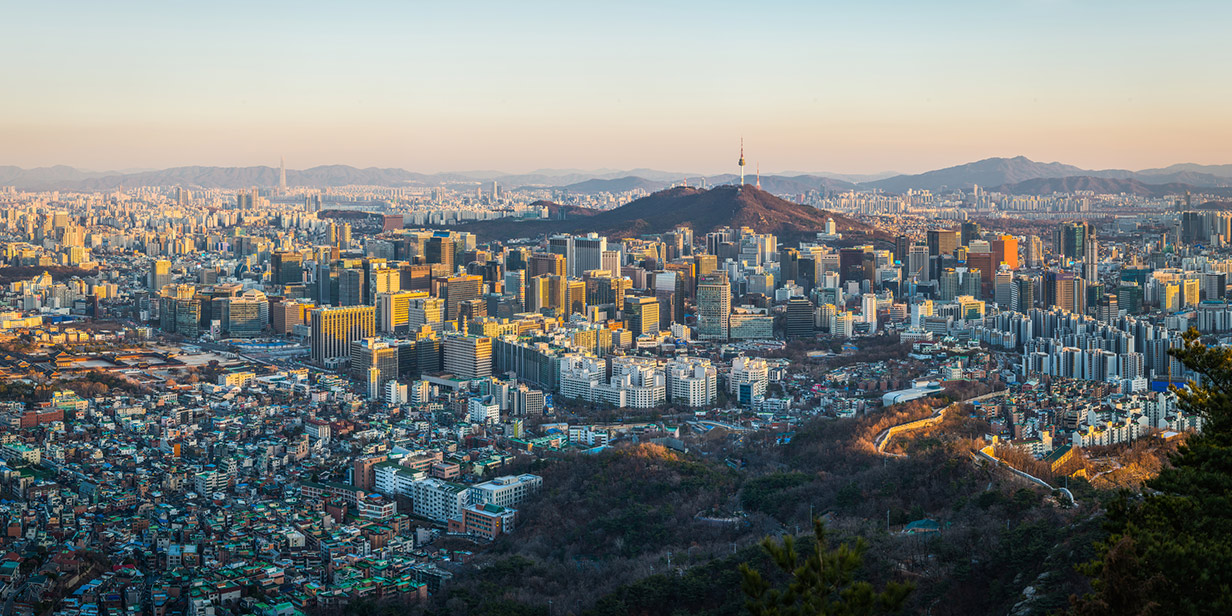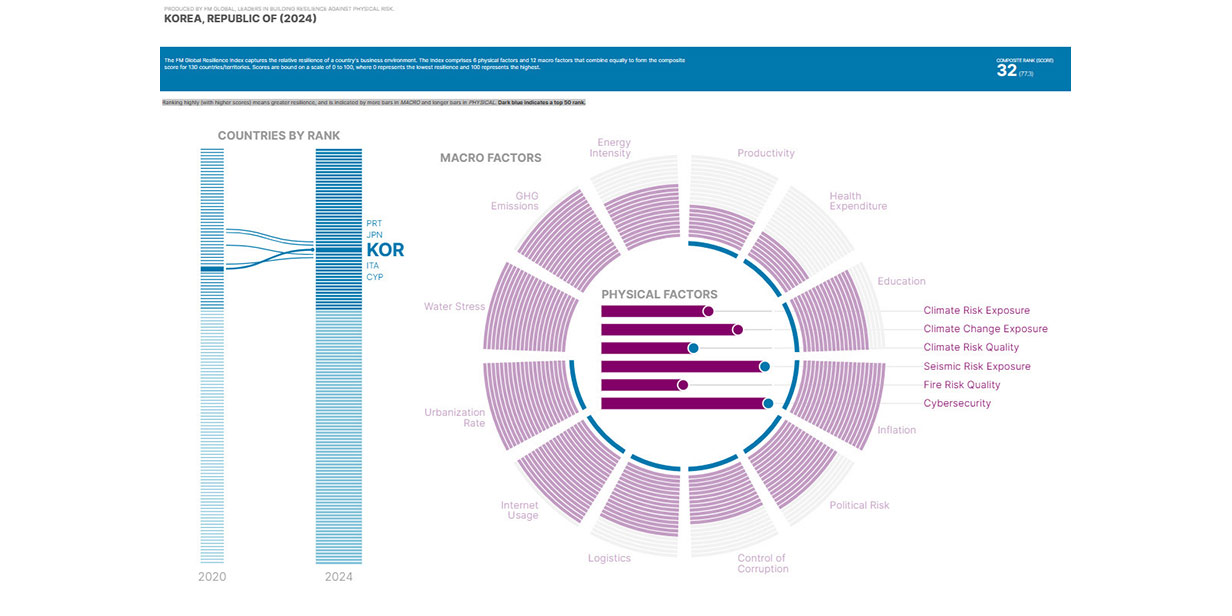Republic of Korea: Asia’s Technology Heartland

In this series, we take a closer look at how key Asia countries and territories ranked in this year’s FM Resilience Index. The Resilience Index is a tool developed to help understand a country's ability to swiftly recover after disruptive events as well as which risks are manageable.
Since the end of the Korean War in 1953, South Korea has transformed itself from a war-torn, impoverished nation into a prosperous, technologically advanced society. In just a few decades, the country has made remarkable strides in areas such as economic development, education, and healthcare, as well as in promoting democratic values and human rights. South Korea is now one of the world's leading economies, known for its cutting-edge technology, world-class companies, and highly educated workforce. Its rapid transformation from a developing to a developed nation serves as an example to the region.
Ranked No. 32 on the 2024 FM Resilience Index, South Korea is today a global economic powerhouse with a Gross Domestic Product (GDP) of around USD 1.6 trillion, matched by one of the highest GDPs per capita globally. South Korea sits behind Singapore and alongside Japan as Asia’s most resilient places to conduct business.
Situated in Northeast Asia, South Korea is strategically located for modern trade and enterprise, benefitting from its proximity to major Asian markets while providing a vital link in the global supply chains for many of our in demand technology-related goods. South Korea's No. 19 ranking for logistics reflects the dynamism of its well-developed marine and aviation infrastructure to support its export strength, as well as the origin of blockbuster global brands, including Samsung, LG, and Hyundai.

South Korea scores a creditable No. 26 ranking for inflation, which measured at 3.59 per cent in 2023, indicating an economy based on sound fundamentals but with exposure to global economic currents. It ranks No. 30 for productivity, reflecting challenges posed by the need to balance increasing technology-led automation against an ageing population and rising youth unemployment levels.
The Land of the Morning Calm is known for its stable political environment and strong governance. Despite its proximity to neighbouring North Korea, political risk is ranked No. 37, and control of corruption at No. 34 on the Index. It ranks No. 7 for its commitment to cyber security, indicating the presence of strong policy setting and safeguards to protect business intelligence and the industrial control systems that are so vital to its economic advantage.
South Korea ranks No. 105 for climate change exposure, which is a measure of the area of land utilised for economic purposes that is exposed to climate impacts by 2050, and No. 109 for climate risk exposure, which measures the same area today that is exposed specifically to the risks posed by typhoons and floods.
South Korea just makes the top half of the Index for greenhouse gas emissions, which measures estimated national emissions divided by GDP per capita to achieve a score. Its ranking at No. 60 reflects its high levels on industrialisation, with an increasing focus on the decarbonisation of its manufacturing sectors and supply chains. South Korea has pledged to reach carbon neutrality by 2050 and has set a goal to reduce its greenhouse gas emissions by 24.4% from business-as-usual levels by 2030.
The country's energy intensity is ranked No. 105, reflecting the high energy demands of its high-tech industries and densely populated and highly urbanised cities. South Korea is at No. 4 on the Index for urbanisation, reflecting the high percentage of its populations living in urban settings. According to the World Bank, as of 2019, a staggering 82% of the total population of South Korea lived in urban areas. Its No. 117 ranking for water stress is typical for highly urbanised economies, where it measures freshwater withdrawal as a percentage of a country’s freshwater resources.
South Korea’s Index ranking for climate risk quality sits at No. 41, an acknowledgement of its inherent risk factors and a strong commitment to mitigation through improving building codes and standards, leading to the country being recognized for having some of the most advanced and sustainable buildings in the world. Alongside this is its ranking for fire risk quality, at No. 61, indicating the quality of its building design standards and fire safety protocols, presenting opportunities for continued improvement.
South Korea’s resilience is built on its status as Asia’s most innovative and advanced technological heartland, backed by a stable and forward-thinking political climate, that makes it one of the world’s most progressive export economies. Aside from clear economic strengths, its attention to mitigating innate and emerging climate risks – often through technology innovation – propels South Korea into the top bracket of the FM Resilience Index and is likely to rise further in the years to come.
